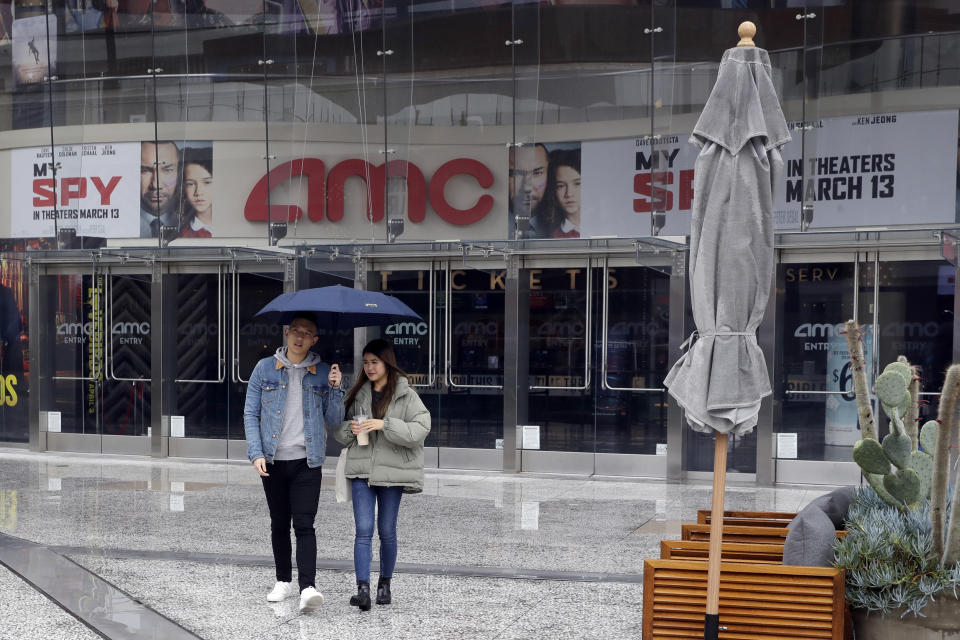Movie theaters seek bailout as coronavirus devastates business
The widespread social distancing that Americans are practicing to curb the spread of coronavirus is hitting practically every corner of the economy, and movie theaters are no exception.
AMC and Regal Cinemas, the two largest movie theater chains in the country, shut down all their theaters in the U.S. on Monday, followed by Cinemark, the No. 3 player, on Tuesday.
By Wednesday, almost all movie theaters in America had closed, giving a general timeline of six to 12 weeks before they’ll reopen.
Now the industry, which has more than 150,000 hourly workers, is already asking for relief.
The National Association of Theater Owners or NATO (but not that NATO), a trade group whose member chains own more than 30,000 screens in the U.S., is asking the federal government for immediate relief measures: loan guarantees to help with liquidity; tax benefits so that chains can still pay employees; and “tax measures that will allow theaters to recoup losses when the industry is back up and running.” NATO also set aside $1 million from its reserves to aid movie theater employees.
And the trade group is calling out reports that the Trump administration is considering bailouts for the airlines. NATO’s president John Fithian told the New York Times, “We would ask that they also consider the movie theater industry, an important part of the cultural fabric for our country.”
On the news of the bailout request, AMC stock (AMC) finished Thursday up 36%, Cinemark (CNK) up 73%, and IMAX up 59%.

Even before the theaters all shut down, moviegoers had decided en masse to stop going amid coronavirus concerns.
In each of the four U.S. cities with the biggest COVID-19 outbreaks (Seattle, Los Angeles, San Francisco and New York), foot traffic to movie theaters was down about 30% from Feb. 19 through March 13, according to location data from Foursquare. Foot traffic to movie theaters nationally was down 24% on average in that time.
Last weekend (March 13 to March 15) was the worst weekend for movie ticket sales since 2000, according to Comscore. (There is an interesting silver lining: amid coronavirus, the country’s 300 drive-in theaters are seeing a big bump.)
Theater closures also spell obvious bad news for the movie studios. Disney delayed the March 27 release of its live-action “Mulan” and the May 1 release of Marvel’s “Black Widow.” MGM delayed the worldwide release of the new James Bond movie, “No Time To Die,” from April to November. Sony delayed the release of “Peter Rabbit 2” from April to August. Universal delayed the release of the ninth “Fast and Furious” movie an entire year, from May 2020 to April 2021. The Cannes Film Festival is postponed from May until the end of June, and even that timeline may be optimistic.
At least many of the studios have streaming services (like Disney+) that they can promote at this time, and to which they can push some content. As NATO noted in its press release asking for a bailout, physical movie theaters are “uniquely vulnerable in the present crisis.”
—
Daniel Roberts is an editor-at-large at Yahoo Finance and closely covers media and streaming. Follow him on Twitter at @readDanwrite.
Read more:
Coronavirus puts ‘extreme pressure’ on the three main pillars of Disney’s business
Disney's 'Hamilton' movie could usher in new boom of musical movies
Disney+, Apple TV+ and Netflix can coexist—for now
‘Dark Phoenix’ was a giant bomb from Fox that hurt Disney earnings
